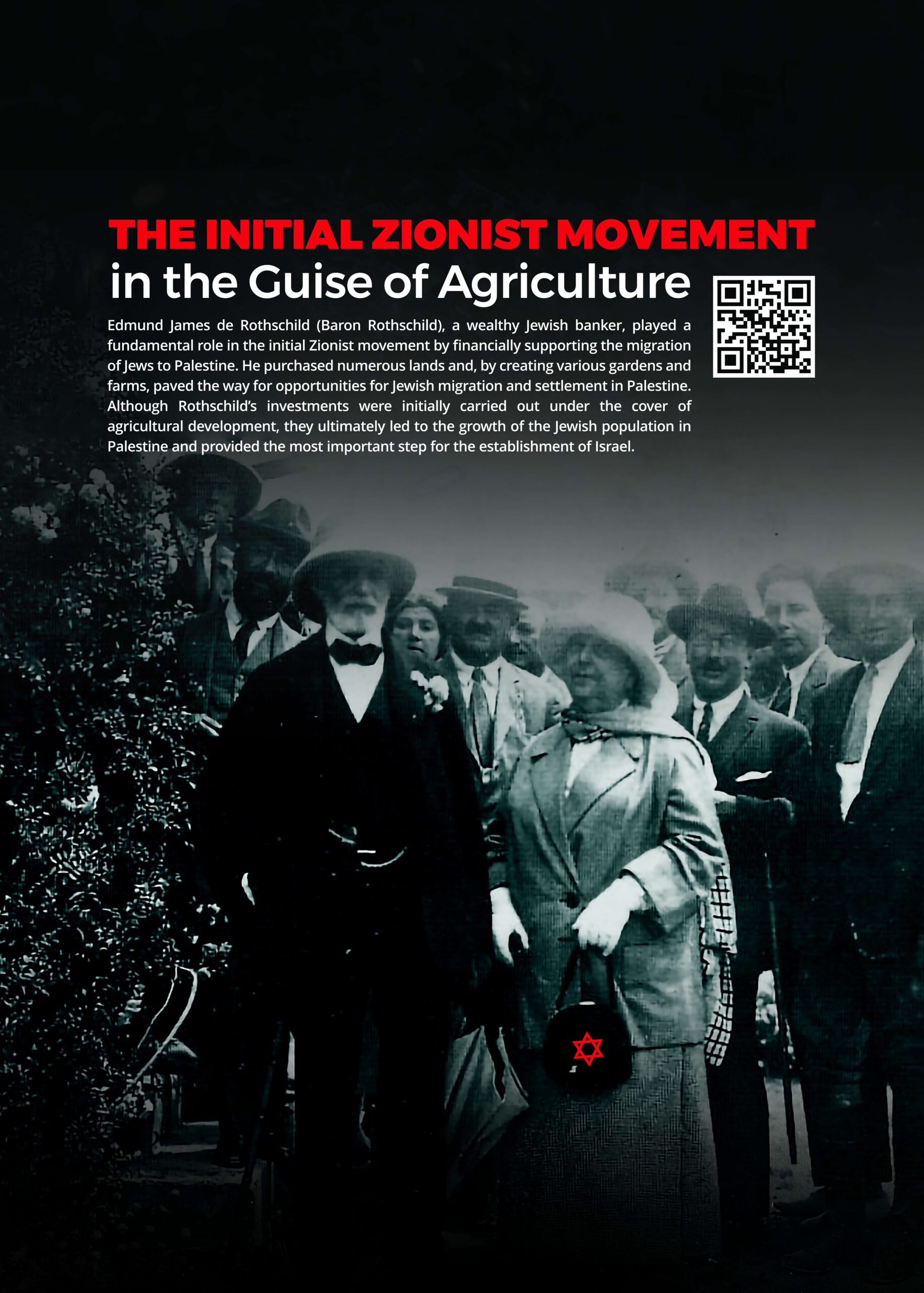
Land Purchases by Zionists in Palestine and the Start of Occupation
The Zionist movement, emerging in the late 19th century, aimed to establish an exclusively Jewish homeland in Palestine. A central figure in this movement was Baron Edmond de Rothschild, a French banker and investor who played a decisive role in facilitating the early stages of Jewish settlement in Palestine. It is worth briefly examining the strategies and methods of Zionist movement leaders, including Rothschild, regarding the purchase of Palestinian lands before Israel’s establishment in 1948 and the significance of these actions in the broader Zionist project.
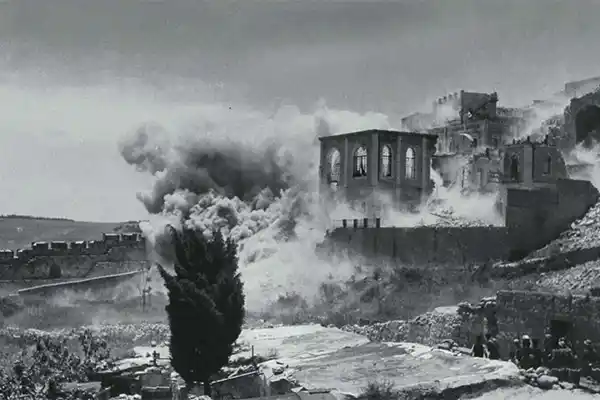
Early Zionist Movement and the Beginning of Jewish Influx into Palestinian Areas
The emergence of the Zionist movement can be traced to the late 1800s when European Jews, under the pretext of escaping rising antisemitism and seeking an autonomous homeland, migrated to Palestine. The “First Aliyah” (1882-1903) initiated the initial wave of Jewish immigration to Palestine, then part of the Ottoman Empire. During this period, with substantial financial support from wealthy Jews, particularly the Rothschild family, the expansion of agricultural communities called “moshavot” was prioritized by Zionists.
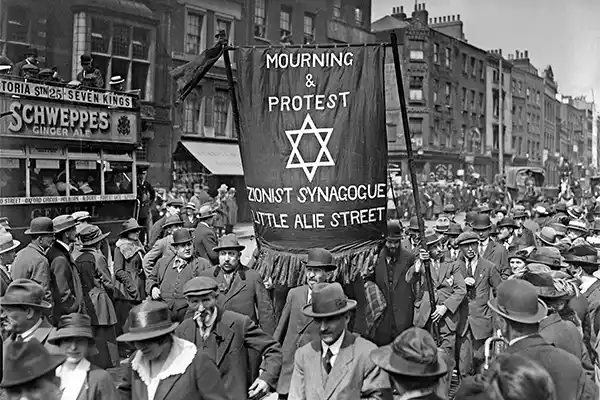

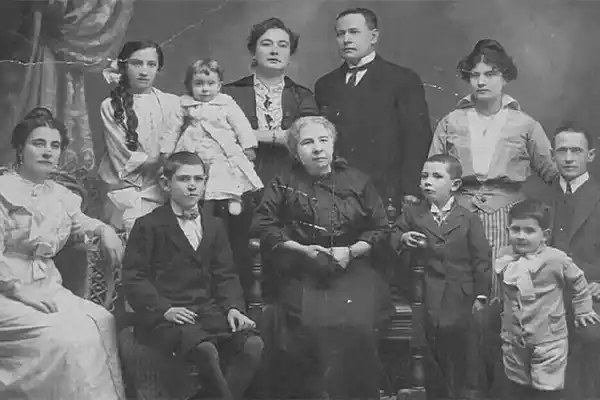
Step One: Land Purchases by Rothschild
Additionally, in 2022, Zionists attacked this region an average of 30 times per week, with 16 attacks resulting in casualties or property damage and 14 involving harassment, intimidation, or unauthorized entry into homes. During these violent acts, 46 people were injured, 241 trees were damaged, 6 livestock were stolen, killed, or injured, and 14 vehicles were damaged. From 2017 to 2022, violence by Israeli settlers against Palestinians increased by 96%, with 13 Palestinians killed by Israelis. In 2022, settler violence amounted to 1,571 attacks, including casualties, property damage, harassment, intimidation, and unauthorized home entries, with numbers rising yearly. (Premiere Urgence Internationale Palestine)
Revocation of Residency for Palestine’s Original Owners
Interestingly, Rothschild is often called the “father of modern Israel” due to his significant financial support for early Jewish settlement in Palestine. His plan, developed with early Zionist leaders, focused on purchasing Palestinian lands and establishing agricultural communities as the foundation for the state they aimed to establish. Unlike other Zionist leaders, his approach emphasized land acquisition over purely diplomatic or political support.
- Financial Contributions: Rothschild invested significantly in establishing Jewish agricultural settlements, donating approximately 40 million francs (equivalent to over $200 million today) to develop lands and improve living conditions for Jewish settlers in Palestine.
- Land Purchase Strategy: Rothschild and Zionist leaders focused on acquiring agricultural lands in strategic Palestinian areas, often purchasing from absentee landlords. This tactic ensured access to needed lands while avoiding direct confrontation with local Arabs, as transactions were primarily conducted through financial negotiations outside Palestine.


Role of the Land Purchase Strategy in the Broader Zionist Movement
The successful implementation of the land purchase strategy significantly bolstered Zionist motivations and laid the groundwork for future developments:
- Establishment of Jewish Institutions: Land acquisition necessitated the creation of institutions to manage Jewish community affairs, critical for facilitating the future Jewish state. Rothschild’s support led to the establishment of agricultural communities, educational institutions, and health services for Jews, creating a cohesive society gradually moving toward autonomy.
- Cultural Revival: By acquiring land and establishing agricultural communities, Zionists not only claimed Palestinian territory but also promoted cultural revival among Jewish immigrants. The land purchase and settlement strategy fostered a sense of national identity and collective culture among Jews from Europe and elsewhere.
- Diplomatic Leverage: With Palestine’s status clarified, especially in the context of World War I, Jewish-held lands and established communities provided Zionist leaders significant leverage in negotiations with global powers. The 1917 Balfour Declaration, supporting a “national home for the Jewish people” in Palestine, was influenced by the groundwork laid through land purchases and Jewish presence.
- Rising Tensions: The increasing number of Jewish settlements and land purchases caused noticeable tensions with Palestinian Arabs, setting the stage for future conflicts. The disparity between Jewish land ownership and Arab landlessness became a persistent point of contention, impacting both communities’ dynamics.
The strategy of purchasing Palestinian lands, led by Rothschild and other Zionist leaders before 1948, was a critical component of the movement to establish Israel. These steps led to the creation of functional communities with internal agricultural practices, reinforced a revived Jewish culture, and positioned Jewish leaders favorably in diplomatic negotiations with global powers. However, this strategy also sowed the seeds of conflict between Arabs and Jews in Palestine, escalating in subsequent decades and continuing to this day. Their approach intricately addressed the relationship between land, identity, and Jewish national ambitions, strengthening their connection.
Through this overview, it is clear that the Rothschilds’ contributions to the Zionist movement were not merely financial. They played a fundamental role in shaping the future of Jewish settlement and the establishment of a Jewish state in Palestine, influencing the region’s socio-political landscape for generations.
During the period leading to Israel’s establishment, Zionists purchased significant portions of Palestinian lands, becoming a source of tension and conflict with the local Arab population. Some key points regarding these events include:
Land Acquisition Strategy and Roots of Arab-Zionist Conflicts
The acquisition of Palestinian lands by the Zionist movement, particularly during the British Mandate, was a turning point in the onset of conflicts between Jews and Palestinians. This land acquisition policy focused primarily on scarce and highly valuable agricultural lands. Many Palestinian landowners in the 1920s, often wealthy absentee landlords, sold their lands due to fears of war or financial reasons. In the 1930s, growing economic hardships led some small Palestinian landowners and peasants to sell their lands to Zionists, often forcing tenant farmers to leave without compensation.
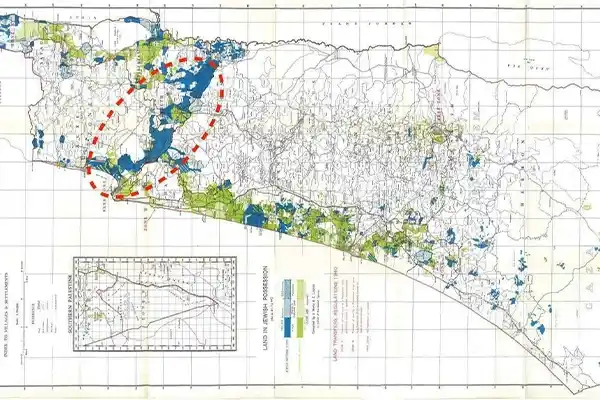
Key Palestinian Figures in Land Sales:
Prominent Palestinian figures involved in the Zionist land purchase strategy included leaders from notable Arab families, such as:
- Awni Abdul Hadi, who acted as an intermediary in transferring Palestinian lands to the Zionist movement, profiting from these transactions.
- Husseini Family, particularly Mohammed Amin Husseini, a prominent Palestinian figure during this period, who facilitated the sale of agricultural lands targeted by Zionists.
These individuals were labeled as traitors and sellouts among Palestinian Arabs, as they enriched themselves at the expense of their compatriots while facilitating the Zionist takeover of their lands.
Consequences of the Specific Land Purchase Strategy from Major Palestinian Landowners:
The method of purchasing land from large Arab landowners, often accompanied by evicting residents, intensified tensions and resentment among local Palestinians. The perception that some Palestinian elites were profiting by selling lands at the expense of their compatriots’ lives and interests heightened internal social conflicts among Arabs. Additionally, this method allowed Zionists to avoid direct confrontation by using local intermediaries to achieve their goals.
In summary, the combination of the Zionist land purchase strategy and the role of some Palestinians in these transactions created a complex situation that paved the way for future conflicts and Zionist occupation.
Baron Edmond de Rothschild, even before the Balfour Declaration, played a significant role in developing Jewish communities in Palestine in various ways, some of which are briefly outlined below:
- Financial Support for Jewish Settlements: Rothschild funded the establishment of several early Jewish settlements in Palestine. His financial support was crucial for agricultural projects and building essential institutions in settlements vital for subsequent Jewish colonial efforts. For example, establishing vineyards and farms and his commitment to reviving Jewish agricultural life shaped a distinct aspect of their modern identity and facilitated related actions.
- Management of Jewish Settlements: He participated in managing these settlements, sending farmers and experts to assist Jewish settlers in planning and structuring their agricultural activities, fully supporting immigrant groups. This assistance led to the successful establishment of Jewish agricultural communities and their stabilization.
- Support for Jewish Organizations: Rothschild’s influence also led to the establishment of key organizations like the Jewish Colonization Association (JCA), which played a fundamental role in promoting Jewish settlement and agricultural land development in Palestine. He focused on a more organized approach to settling Jewish immigrants, expanding their presence through these groups rather than direct control.
- Encouraging Jewish Immigration to Palestine: By improving Palestine’s economic prospects through his investments, Rothschild indirectly encouraged Jews to migrate and settle there. His actions created conditions that attracted Jews, fostering the belief that Palestine could fulfill their aspirations.
Rothschild’s initiatives laid crucial groundwork for subsequent actions, including the Balfour Declaration. His contributions to establishing a lasting Jewish presence in Palestine and preparing for future political developments were vital.
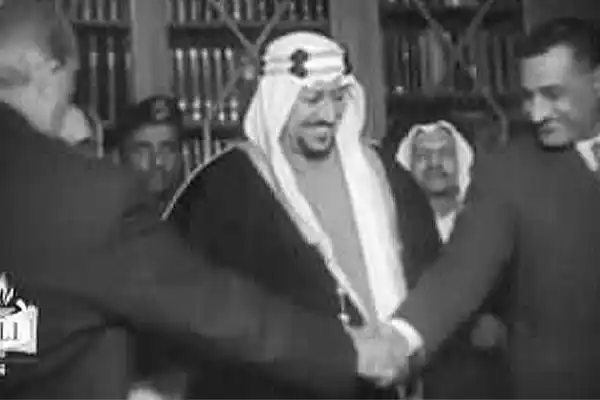
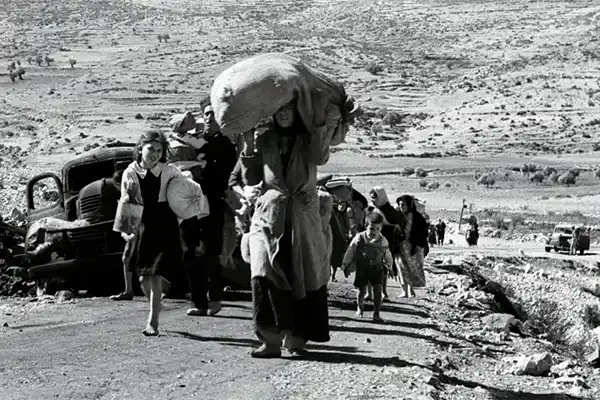
Other Prominent Zionists Collaborating with Rothschild in the Land Purchase Strategy
Documents primarily highlight Rothschild’s role in purchasing lands for Zionist settlement. However, they also indicate other key figures and organizations involved, including:
- Baron Maurice de Hirsch: He played a role in founding the Jewish Colonization Association (JCA) in 1891, initially aimed at settling Russian Jews in various locations but later becoming a significant driver of Zionist colonial efforts in Palestine alongside organizations like the Jewish National Fund.
- Osmond Goldsmith: He actively participated in JCA initiatives and later founded the Palestine Jewish Colonization Association (PICA), whose primary task was purchasing lands for Jews in Palestine. His organization played a significant role in acquiring Palestinian lands.
How Much Land Did Jews Purchase from Palestinians?
According to documents, during the British Mandate and before Israel’s establishment, Zionist Jewish leadership managed to purchase only about 6% of Palestine’s lands. The document notes that by the end of the Mandate, the Zionist movement acquired this small portion through this method, indicating their reliance on other means, including force, for land acquisition in later periods. Thus, the total purchased lands amounted to a mere 6% of arable lands before the major conflicts that led to widespread dispossession.
Overall, the acquisition of Palestinian lands by Jewish settlers before 1947 initially relied on purchases and later on coercive measures. In the late 19th and early 20th centuries, lands were primarily acquired through purchases, often from wealthy absentee Arab landlords who sold their lands, leading to the displacement of Palestinian tenant farmers. For example, in the 1920s, many sellers were wealthy landlords affected by the financial hardships of World War I, selling lands quickly for cash. As economic challenges persisted in the 1930s, even small-scale peasants began selling their lands for money, resulting in the eviction of many Palestinian tenant farmers with minimal compensation.
However, land acquisition through force eventually became the primary Zionist approach, especially as tensions escalated between Jewish settlers and local Arabs. During the British Mandate, land confiscation policies were widely implemented to favor Jewish settlement, often through extraordinary laws and regulations allowing dispossession without compensation.
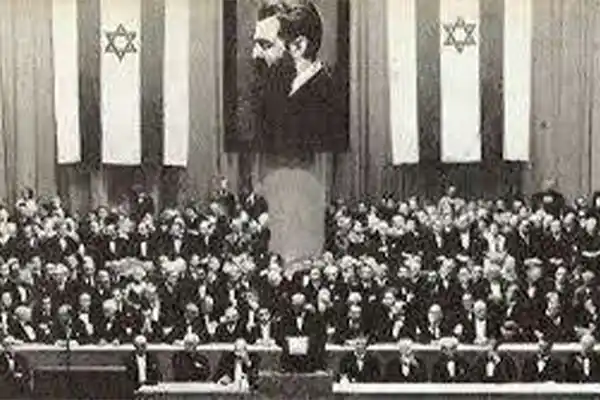
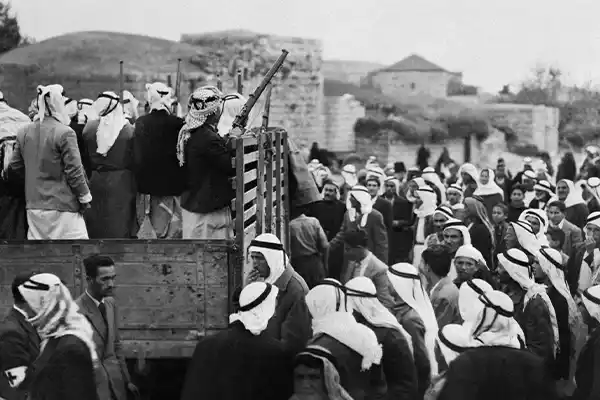
US and Israeli strategies to destabilize Iran


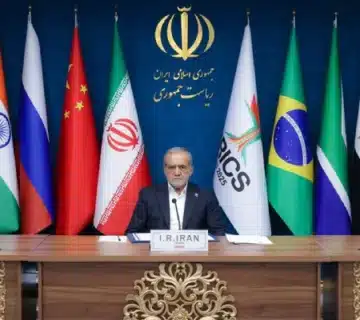



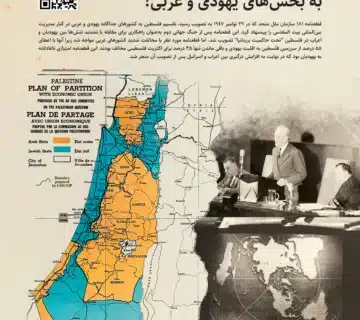
No comment